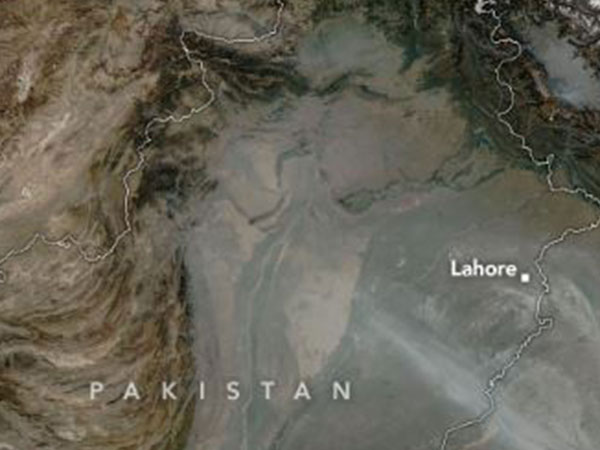Lahore's Battle Against Toxic Smog: A Crisis Visible from Space
Lahore, Pakistan, is shrouded in an alarming smog crisis visible from space, with an AQI peaking at 720 in certain areas. The pollution, severe enough to prompt UNICEF warnings and hospitalizations, highlights systemic environmental mismanagement and has led to the closure of schools and public spaces.

- Country:
- Pakistan
The Pakistani city of Lahore is grappling with a severe smog crisis, so intense that it's now visible from space, according to satellite images by NASA, as reported by Geo News. This environmental catastrophe affects key cities including Multan and Islamabad.
Lahore and Multan are currently blanketed in thick haze, obscuring buildings and streets. IQAir, a Swiss air quality technology company, reported that Lahore has the most polluted air globally as of Tuesday, with an Air Quality Index of 429, and some areas showing alarming readings of up to 720.
The situation's severity has triggered a warning from UNICEF, highlighting the health risks posed by Punjab's polluted air to the population, especially over 11 million children under five. The crisis has led to hundreds of hospitalizations and has forced officials to close schools and public areas.
Abdullah Fadil, UNICEF's representative in Pakistan, expressed deep concern over children's exposure to the noxious air. Meanwhile, Pakistani authorities attribute the persistent pollution to more than seasonal stubble burning, citing factors like unchecked vehicle emissions and outdated industrial practices.
Experts emphasize the urgent need for systemic environmental management as toxic smog plagues Lahore, suggesting the problem is symptomatic of broader shortcomings in environmental stewardship.
(With inputs from agencies.)










